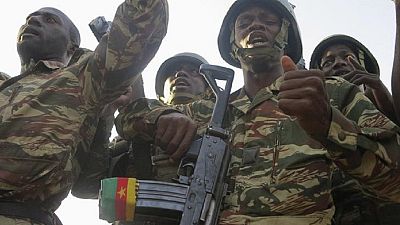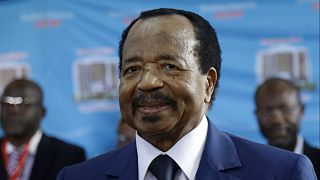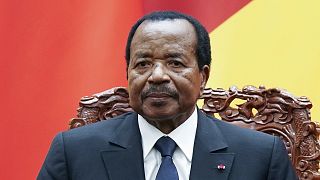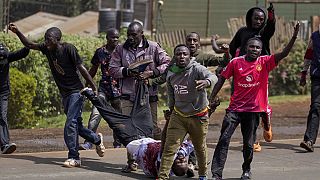Cameroon
A prominent human rights activist in Cameroon has accused the army of causing civilian deaths through fires of houses and places of worship in the English-speaking region of the South-West, an accusation rejected by the army.
Agbor Bala Nkongho, director of the NGO Centre for Human Rights and Democracy in Africa, posted on his Facebook page, a chilling account that describes a miliary raid on a remote village in the region.
“On Tuesday, April 3, the Cameroonian army attacked and burned several houses in Mungo Vendeur, a small village located about 40 km from Nguti to Koupé-Manengouba (South-West). Ms Egbe Maria Ndonge was burned to death in her house while she slept,” said Nkongho.
“We have received reports of 6 civilians killed and reports of civilian killings in the village. Intentionally killing civilians and destroying civilian property are war crimes, which should be thoroughly investigated,” he continued.
Nkongho was one of the leaders of the first uprising of the English-speaking protest at the end of 2016. Arrested in mid-2017, he was released in September by presidential decree.
It is in this area that 12 Italian and Swiss tourists were briefly arrested by armed men on Monday, according to their travel agency.
The army responds
“Cameroon has been independent since 1960 and has no lessons to learn in the way its defence forces legally pursue their missions of securing populations. We also do not intend to respond to maneuvers of intoxication and diversion,” Colonel Didier Badjeck, spokesman for the Cameroonian army, contacted by telephone from Libreville, told AFP.
“It is extraordinary how some of these so-called actors of the region have resorted to faking the truth, or transforming it. We ask that evidence of these alleged abuses by our forces is presented to us,” he added.
Since the end of 2017, the security situation has deteriorated considerably in the English-speaking regions of the North-West and South-West, with armed separatist groups multiplying violent actions against state forces and kidnapping civil servants.
Yaoundé responded by force, deploying a strong security apparatus. The army has been accused several times of abuses through testimonies in the press and on social networks.
Observers fear that the Anglophone crisis could disrupt presidential elections scheduled to be held at the end of 2018.
AFP













01:13
17 soldiers killed as gunmen raid army bases in northern Nigeria
01:37
Kenyan police officer arrested after protests over blogger's death in custody
11:14
Rwanda Walks Away: what’s behind the Central Africa rift? [Business Africa]
01:52
138 million child workers globally in 2024, number down from 2020
01:10
Burundians go to the polls in first legislative elections since 2020
Go to video
Boko Haram resurgence: the Nigerian army's constant challenges